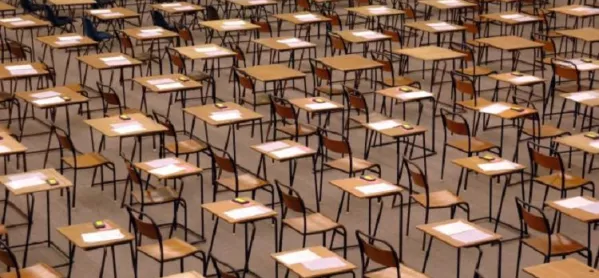A year or so ago, I attended a headteachers’ conference where one of the speakers said something that stuck with me.
He told his audience to make sure that they “don’t get good at a bad game”.
I think this phrase sums up the concerns that will be raised by a Tes story today which shows how a multi-academy trust explored different ways in which it could boost its Progress 8 scores.
Exclusive: MAT accused of acting on ‘off-rolling’ plan
Background: How a MAT looked to improve progress scores
Document: MAT report hows trust looked at removing low achieving pupils from school rolls
It would be naive to think that schools and trusts are not massively focused on hitting targets.
Many would argue they have to be. This is, after all, the way in which the accountability system has measured success and failure for decades.
And schools and their trusts can be lauded or penalised accordingly for the outcomes they achieve.
Unnerving
But there is something unnerving about the way in which this GORSE Academies Trust document addresses the issue.
The trust’s chief executive Sir John Townsley says this report, seen by Tes, was a theoretical discussion and that none of the “unacceptable” practices that were discussed by its staff as a way of improving results was actually implemented.
However, Leeds City Council has described the report as a “deeply disturbing document” and has accused GORSE of now following through on a plan to remove low-achieving pupils from school rolls.
What is perhaps most alarming about this report is the way in which it frames education.
It says from the outset that staff should set aside ethical considerations when coming at this problem - these would be a matter for the trust board at a later date.
It then outlines a series of ways in which it could boost its results.
This includes the removal of low-achieving “anchor” students - those who are weighing down the scores - from a school’s roll and even goes into detail about how this can be achieved.
What about pupils’ interests?
The report also considers other options to maximise results that might raise eyebrows.
This includes setting out - under the heading “How easy are BTECs?” - how ensuring pupils do BTEC coursework under “skilled supervision” may see them achieving higher grades for the trust than they would with GCSEs, which have a larger exam component.
It also explores the use of the European Computer Driving Licence even though the report acknowledges concerns about the qualification’s credibility.
But it all seems to be about the trust. There is almost no mention of what is in the pupils’ best interests, their wellbeing, or what the trust wants education to achieve for its students.
Regardless of what GORSE did with this document, the fact is that a trust with a successful track record for school improvement identified practices - which its own leader has since described as “unacceptable” - as possible ways of achieving further success.
Doesn’t that suggest something has gone wrong with our education system?





